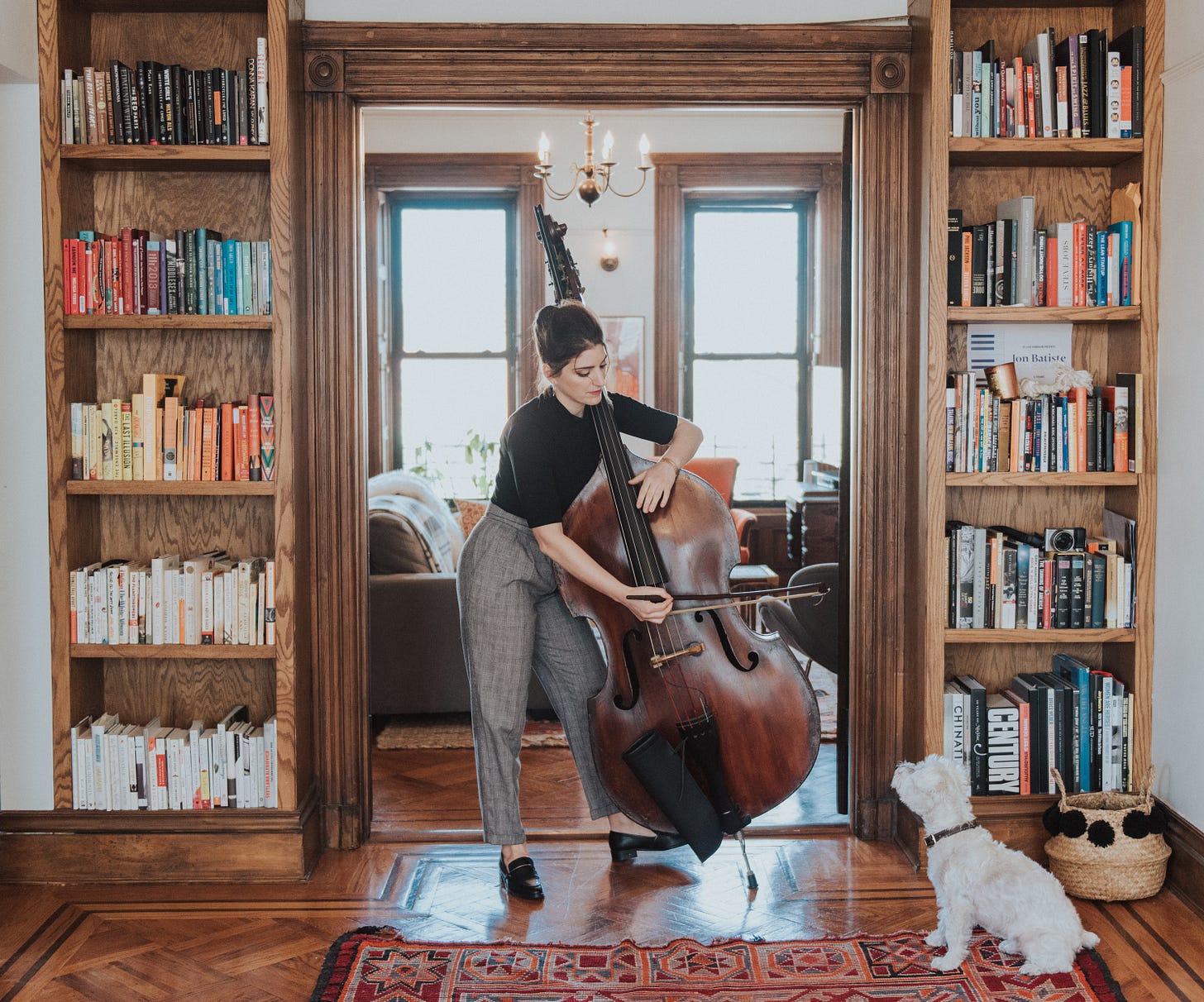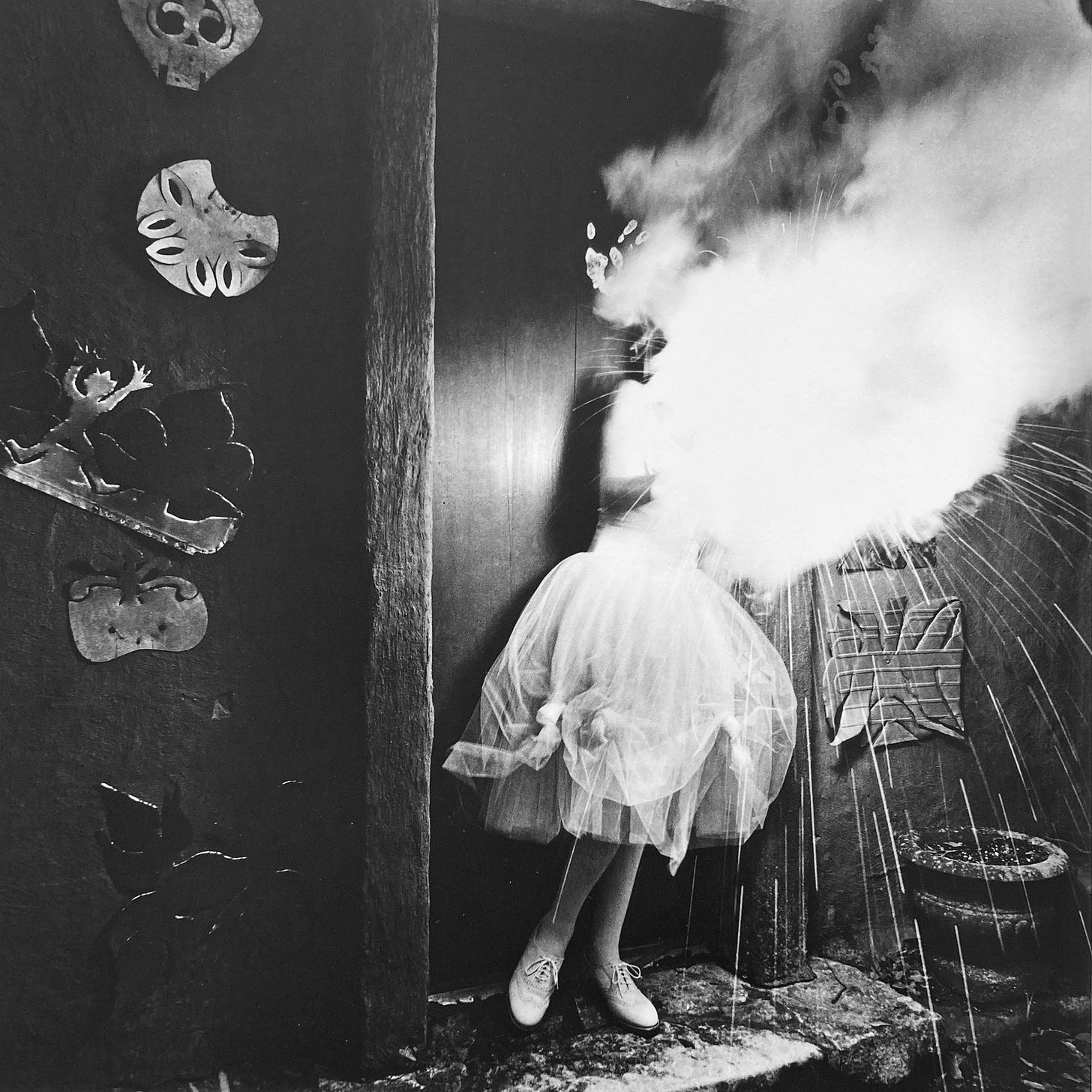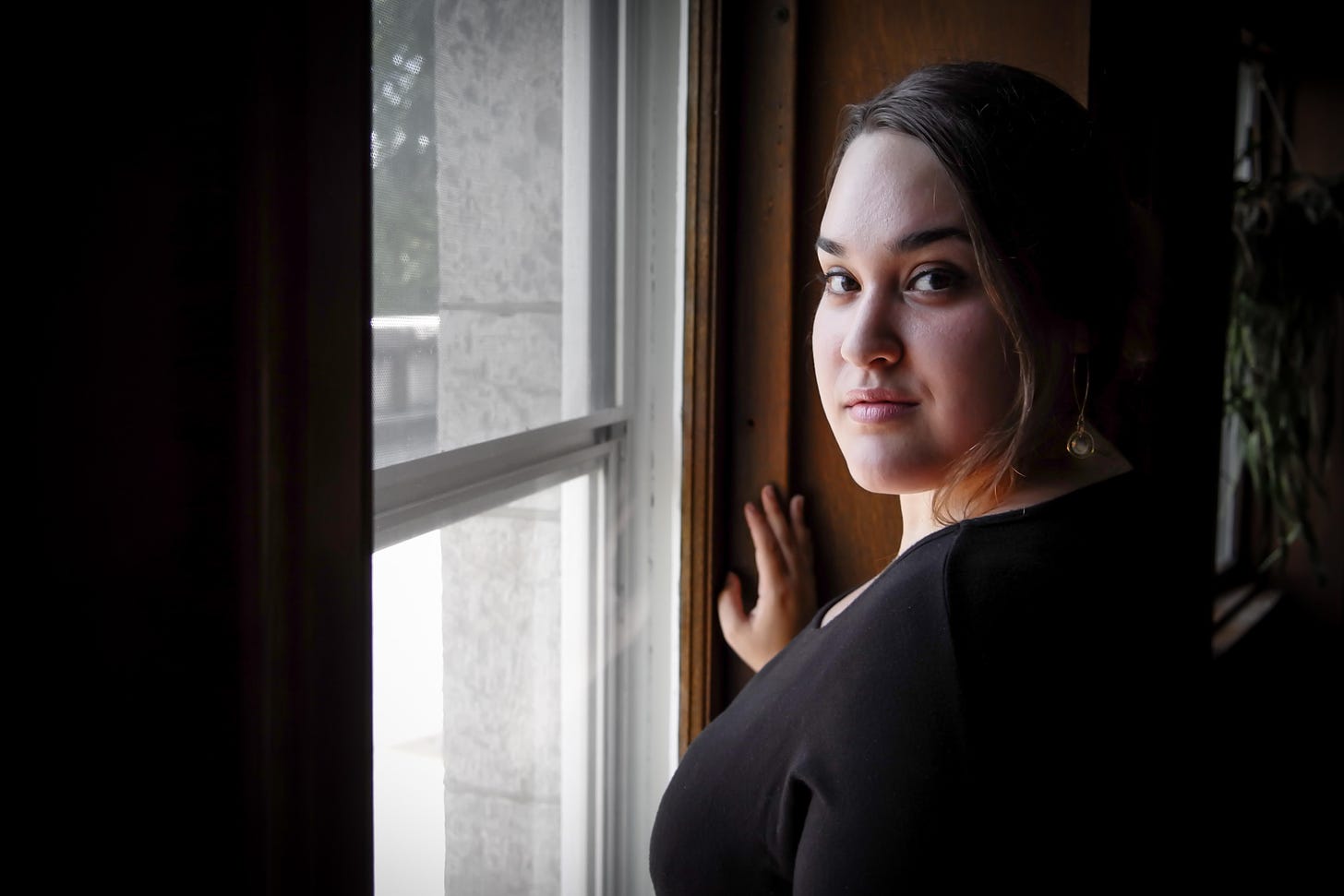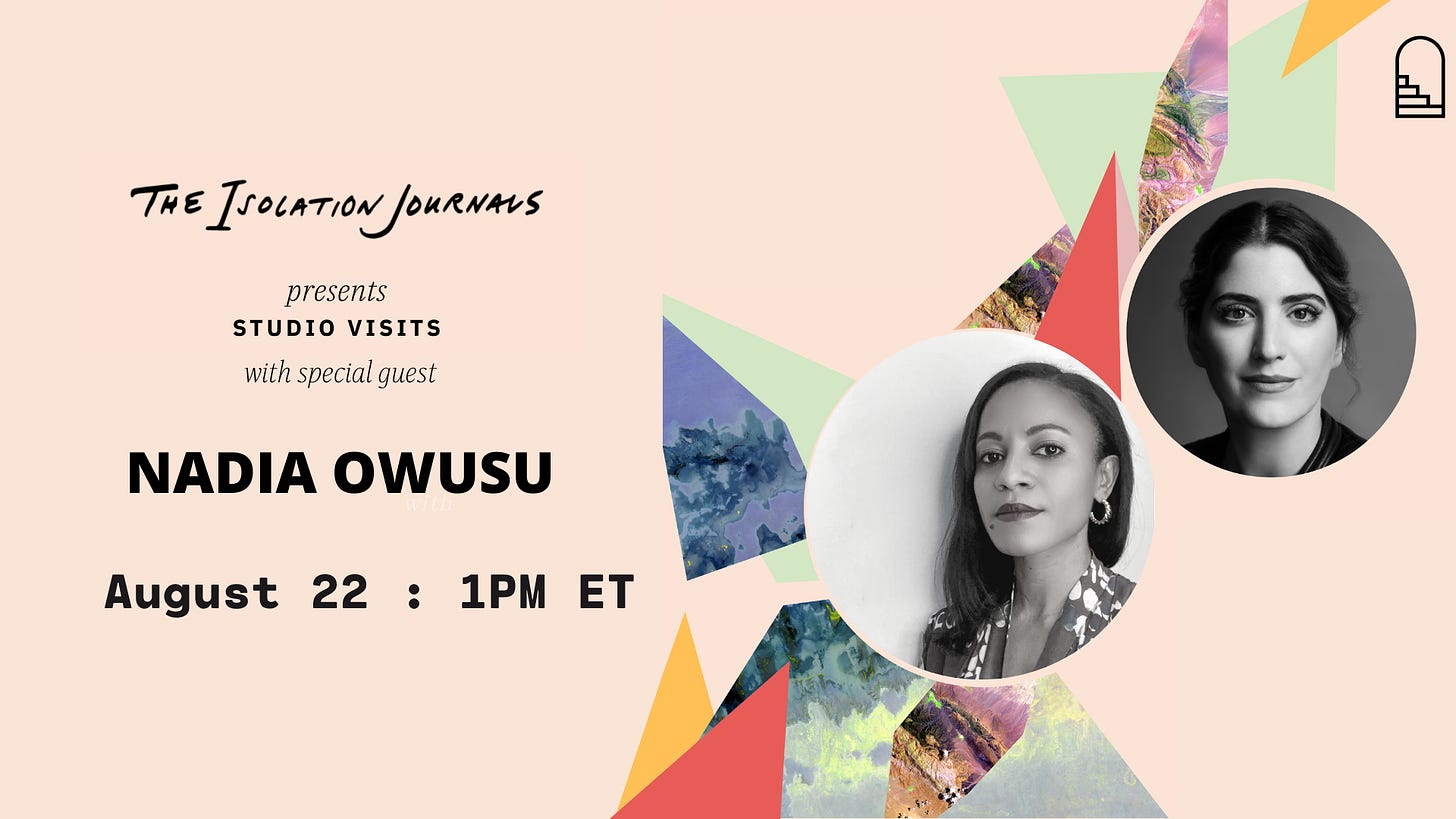Hi friend,
I was in kindergarten when my mother started me on the piano. In addition to being an artist, she was a talented classical pianist, and she began to teach me herself and would sit and practice with me too. But I hated it, and I only became interested in music at eight, when I was allowed to choose a secondary instrument.
I chose the double bass, partly because of how inconvenient it was for my parents, partly because I was mystified by it and therefore drawn to it. I loved its size and its shapeliness and the way its low notes would vibrate in my chest when I pulled bow across strings. I dreamed of attending conservatory and playing in a professional orchestra.
But as much as I loved the double bass, by age seventeen, I realized that I was never going to be successful in the way I wanted, and I chose a different path. Yet it’s not an exaggeration to say that my musical training informs every part of my life today, from the discipline I developed from hours of practice, to the way I think of writing in musical terms: how sentences have rhythms, how ornamental language is like vibrato (to be used sparingly, lest it become distracting), how, like a symphony, a book can have movements—slow like adagio, fast like allegro, quickening then resolving in a grand finale.
Recently I’ve been considering taking double bass lessons again—not because I want to play professionally or even publicly, but because I know the value of cultivating a creative practice for my own satisfaction, without any stated end goal. It’s what we felt free to do as children—something this week’s prompt contributor, my friend and the gorgeous writer Natasha Yglesias, asks us to consider.
Sending love,
Suleika
P.S. To our paid subscribers: We’ve posted a discussion thread inspired by our next Studio Visits guest Nadia Owusu and her stunning and widely lauded debut memoir, Aftershocks. Can’t wait to hear what you have to say!
157. Awakening by Natasha Yglesias
“Here,” my mother said, standing beside me in the kitchen, fridge open and fan running full force on our faces. It was hot, and I was eight. “Open your hand.”
The first time I ever received a camera—cheap and disposable and too bulky for my hands—I used up the film in minutes. I hurried outside, the chunky plastic in my fist fueling me with purpose. I was unleashed. Through the little lens, everything suddenly gained meaning. Each pebble contained grace; each bird became inquisitive and poetic. At the right angle, a crack in the sidewalk was a masterpiece.
I remember I was particularly interested in shadows and geometry. I rushed up and down our condo complex and took pictures of stairs and doors and windchimes cast in light. I snapped the branches of Joshua trees and the flowers of cacti. Everything contained artistry, every place was waiting for me to unearth its potential. I remember the newness of authority, of power and purpose.
When I finished, my mother was still in the kitchen deciding on dinner. “Already?” she asked, accepting the camera thrust out to her.
The thing is, I don’t know if she developed the film; I don’t remember any photos.
What I do remember, however, was the moment of awakening. The artist in me had been given the tools, context, and permission to come forth, imagine, and create. The camera was so different from the standard fare of crayons and colored pencils I had access to. Its specific mechanisms felt mystical and adult: I had been bestowed a holy tool. While I may not have the photo results of my artistic endeavor, the moment itself is like a photo, one I take out from time to time, turning it over in my hands fondly, revisiting it to see if I can discover something new.
Your prompt for the week:
Write about your artist awakening. When was the first time you actively created with intention? What inspired that moment of power and purpose? Remember how you felt during this act of creation, and try to recall how you felt once you viewed your finished product. Is anything from that moment of awakening indicative of your relationship with art now?
Today’s Contributor
Natasha Yglesias is a writer and editor based in Northern California. A graduate of the Bennington Writing Seminars, her fiction has appeared in Third Point Press, Waypoints Magazine, Lockjaw Magazine, and elsewhere. She’s currently a fiction submissions reader for Post Road Magazine and The Line Literary Review. She’s on Twitter as @TashaYglesias.
We’re excited to host Nadia Owusu for our next Studio Visit. Nadia is a Ghanaian and Armenian-American writer and urbanist. Her first book, Aftershocks, A Memoir, topped many most-anticipated and best book of the year lists and was a New York Times Book Review Editor’s Choice. By day, Nadia is the Director of Storytelling at Frontline Solutions, a Black-owned consulting firm that helps social-change organizations to define goals, execute plans, and evaluate impact. The recipient of a 2019 Whiting Award, she is a graduate of Pace University (BA), Hunter College (MS), and Mountainview low-residency MFA program, where she now teaches.







